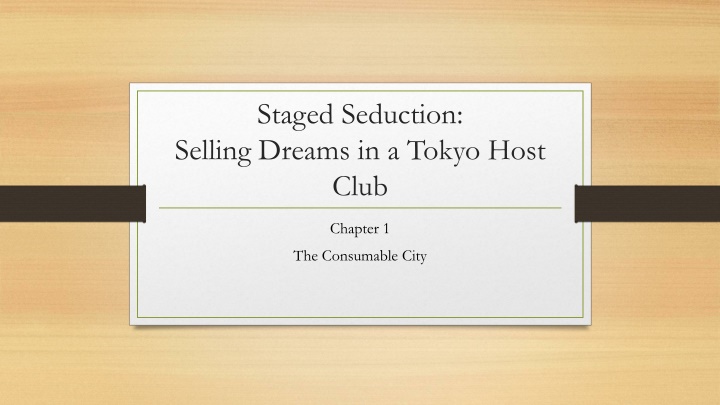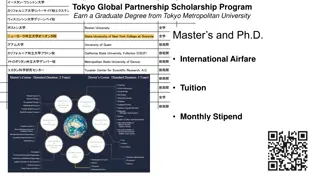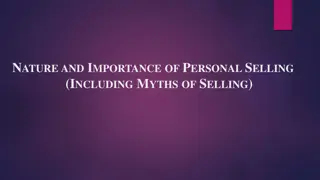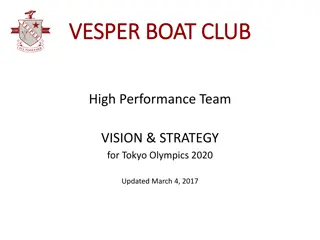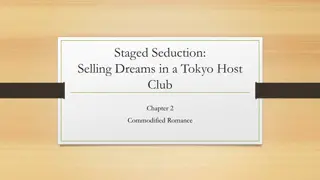Tokyo Host Club Seduction: Selling Dreams in a Consumable City
Immerse yourself in the world of a Tokyo host club where dreams are sold, seduction is staged, and the city itself is a consumable entity. Follow the tale of fantasy and desire against the backdrop of a vibrant metropolis, where reality blurs with fiction in a captivating exploration of cultural phenomena.
Download Presentation

Please find below an Image/Link to download the presentation.
The content on the website is provided AS IS for your information and personal use only. It may not be sold, licensed, or shared on other websites without obtaining consent from the author.If you encounter any issues during the download, it is possible that the publisher has removed the file from their server.
You are allowed to download the files provided on this website for personal or commercial use, subject to the condition that they are used lawfully. All files are the property of their respective owners.
The content on the website is provided AS IS for your information and personal use only. It may not be sold, licensed, or shared on other websites without obtaining consent from the author.
E N D
Presentation Transcript
Staged Seduction: Selling Dreams in a Tokyo Host Club Chapter 1 The Consumable City
Key Words Consumption Visual, material, ideological Future (futuristic/future oriented) ideal city Class and class consciousness Hope/dreams Aspirational self Identity Lifestyle choices
Chapter Summary 1. Tokyo s prosperous economic situation in the 1980s facilitated an increased culture of consumption 2. Hope and the ability to dream is hampered by one s (in)ability to envision a more prosperous future. This was greatly impacted by the economic collapse in the early 1990s 3. Class has been transformed from a socioeconomic and spatial category to an affective and temporal one
Consumable Identity Confessions of a Shopaholic (2009) Sex and the City (1998-2004)
Targeting Female Consumers 1960s British cigarette ad 2013 US diet pill ad
Hope Tokyo economic crash of the early 1990s Less consumer power (lower incomes/fewer jobs) Loss of the ability to approximate an aspirational self via consumption Hope is something to be bought and sold, literally and ideologically, as well as aspired to or abandoned (34) What is Takeyama saying here?
Hope and the Future In the 1980s hope was associated with actual promises of a positive future Having hope was the ability to imagine yourself in a more affluent or brighter future In the recession era, hope has become associated with avoiding an unwanted future Rather than dreaming about what you might accomplish or become, hope was articulated as the ability to avoid a less desirable future
Class and the Future Hope has become a commodity Can you think about how privilege functions in this space? Who has the privilege to be hopeful or have hope? The ability to imagine an alternative, less bleak future has become a very class-based privilege Those who have cultural, socioeconomic capital can afford (literally and metaphorically) to dream
Fantasy What are some preconceptions you have about pleasure districts like Kabuki- cho? How has intimacy (and intimate labor) been femininized? Kabuki-cho offers the chance to dream for non-elite Japanese youth (36) Host Clubs offer a space where women (whose sociocultural identity has been sold to them as rooted in practices of hyper-consumption) are allowed to dream (37)
Conclusion The contemporary class struggle is primarily about the battle between one s present and future conditions. (Recall the privilege of hope) Further, class is also transformed from a socioeconomic and spatial category (where to belong) to an affective and temporal one (how hopeful one is about the future) The Host Club industry provides a site to observe the continued renewal of hopes and dreams and will largely go unfulfilled
